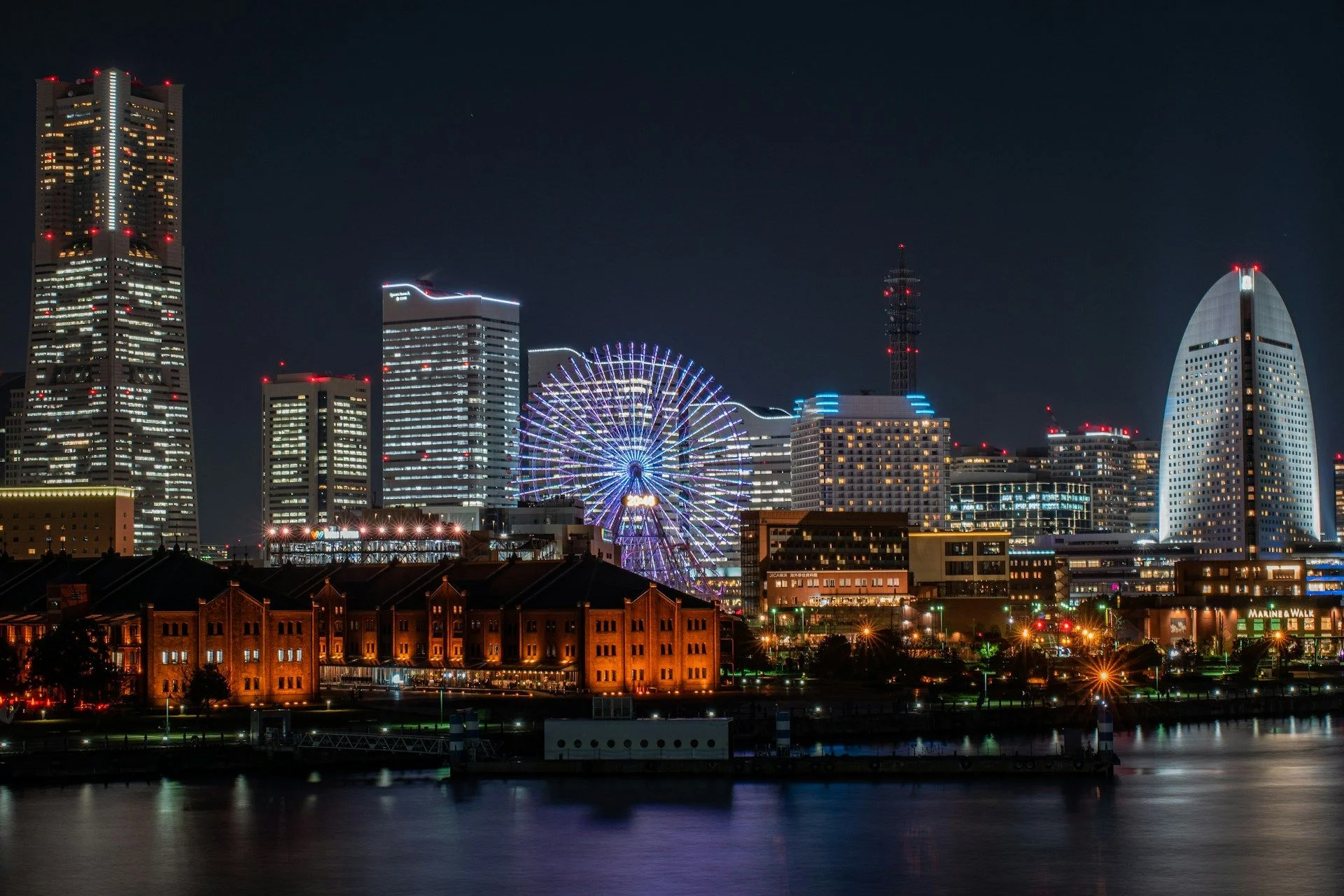Real estate in Yokohama, JapanPort skyline, sea breezeand ordered calm

Best offers
in Yokohama
Benefits of investment in
Japan real estate
Tokyo and Osaka attract steady investment
Developed infrastructure, rental stability, and global city status make Japanese metros a secure option.
Clear legal system and strong ownership rights
Property laws are transparent and favorable to foreign buyers, with no restrictions on ownership.
Demand in compact towns and ski regions
Tourist areas like Niseko and Hakuba show seasonal returns and growing foreign interest.
Tokyo and Osaka attract steady investment
Developed infrastructure, rental stability, and global city status make Japanese metros a secure option.
Clear legal system and strong ownership rights
Property laws are transparent and favorable to foreign buyers, with no restrictions on ownership.
Demand in compact towns and ski regions
Tourist areas like Niseko and Hakuba show seasonal returns and growing foreign interest.

Useful articles
and recommendations from experts
Real Estate in Yokohama, Japan
Why Invest in Property in Yokohama
Yokohama, Japan’s second-largest city and a major port in the Greater Tokyo Area, combines the advantages of a modern urban economy with a more relaxed lifestyle than Tokyo. Located just 30 minutes from central Tokyo by train, Yokohama attracts professionals, families, and international residents looking for quality housing, vibrant culture, and lower prices than the capital. Its strong infrastructure, stable growth, and integration with Tokyo’s economy make it a prime location for real estate investment.
Types of Real Estate Available
The city offers a broad range of property options:
- High-rise condos with bay views — Located in the Minato Mirai area and Yamashita Park zone, offering luxury amenities.
- Family homes and townhouses — In residential areas like Aoba-ku, Totsuka, and Tsuzuki-ku, ideal for long-term rental or end-use.
- Compact investment apartments (1K, 1LDK) — In central locations popular with singles and students.
- Commercial buildings and offices — Found near Yokohama Station and Kannai, offering retail or office leasing potential.
- Serviced apartments and short-term rentals — Near the port or train stations, targeting tourists and business travelers.
Ownership Rights and Legal Access
As in the rest of Japan, foreign buyers have unrestricted rights to own property in Yokohama:
- Freehold ownership is allowed for both land and buildings without Japanese residency.
- No special permits or visas are required for acquisition.
- Title registration is handled through the local Legal Affairs Bureau with help from a judicial scrivener.
- Real estate transactions require notarized contracts and standard due diligence on land rights and taxes.
Prices and Market Trends
Yokohama offers more affordable prices than central Tokyo while remaining part of the same economic ecosystem:
- Condo near Minato Mirai or Sakuragicho: $6,000 – $10,000 per sq. meter
- Apartment in Kanagawa-ku or Naka-ku: $4,000 – $6,500 per sq. meter
- 3-bedroom home in Aoba-ku: $250,000 – $450,000
- Compact investment studio (used): $70,000 – $140,000
- Office space near Yokohama Station: $2,500 – $4,500 per sq. meter
Rental Demand and Income Potential
Yokohama’s rental market benefits from:
- Commuters to Tokyo — Professionals seeking lower rents and family-friendly neighborhoods.
- Students and young workers — Due to proximity to universities and tech hubs.
- Foreign residents and corporate staff — Especially in the Minato Mirai and Naka-ku areas.
- Studio apartment (1K): $600 – $900/month
- 2-bedroom condo: $1,000 – $1,800/month
- Family house in Tsuzuki-ku: $1,500 – $2,500/month
- Serviced unit near port: $80 – $150/night
Top Investment Districts in Yokohama
High-potential areas for real estate investment include:
- Minato Mirai 21 — A modern waterfront business and residential district with luxury condos and office towers.
- Naka-ku and Kannai — Popular for compact apartments, tourism rentals, and commercial activity.
- Aoba-ku — A green, family-friendly area with high demand for houses and stable tenants.
- Tsuzuki-ku and Totsuka — Suitable for suburban homes, low-density condos, and rental families.
- Isogo-ku and Kanazawa-ku — Affordable, emerging areas with commuter links and development potential.
Real Estate Purchase Process and Fees
The buying procedure is standardized and foreigner-friendly:
- Property search via agent — Foreign buyers typically work with English-speaking real estate firms in Japan.
- Purchase offer and agreement — Contract signed through agent and confirmed at notary.
- Due diligence — Includes land rights, zoning, taxes, and tenant lease status (if rental property).
- Title registration — Finalized through judicial scrivener and filed with Legal Affairs Bureau.
- Agent commission: ~3% + ¥60,000 (~$400)
- Registration and license tax: ~0.2% – 0.4%
- Stamp duty: $100 – $600 depending on property value
- Scrivener/legal fees: ~$1,000 – $2,000
Who Should Invest in Yokohama
Ideal investor profiles for this market include:
- Buy-and-hold investors — Looking for steady rental income and gradual appreciation.
- Expats or foreign companies — Seeking housing for relocation staff in a livable city.
- Yield investors — Targeting small apartments or mixed-use properties near stations.
- Buyers priced out of central Tokyo — Who want quality assets within reach of the capital.
Conclusion
Yokohama is a stable and strategic location for real estate investment in Japan. With close proximity to Tokyo, high infrastructure quality, and diverse housing demand, it delivers a balanced blend of income potential and long-term value. Whether acquiring a studio apartment, family home, or commercial asset, investors will find Yokohama a cost-effective and efficient alternative to Tokyo that retains global appeal.
